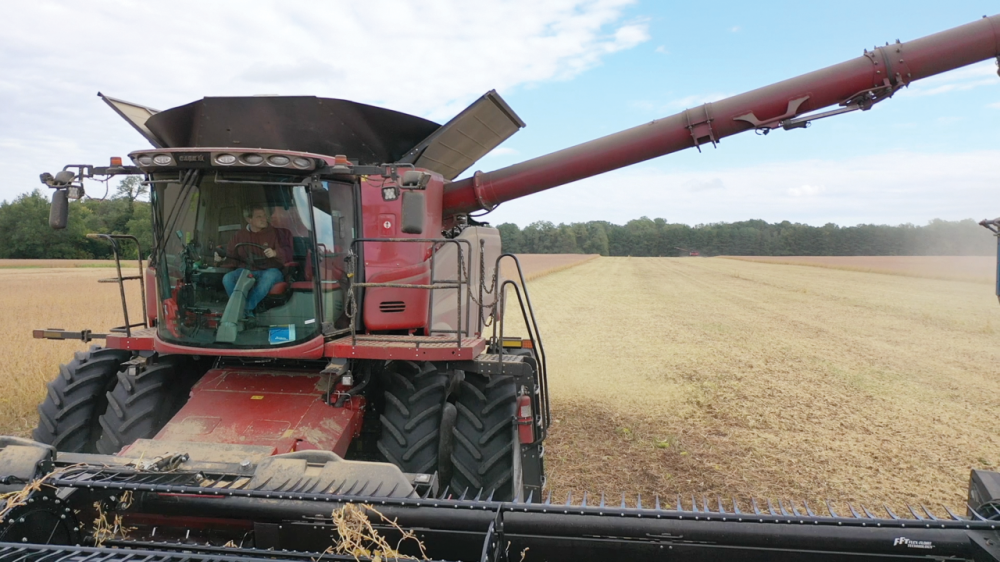This story is a side bar from " Extreme Weather is is Jeopardizing NH’s Farms" article.
 Movie still of Trey Hill, Harborview Farms, Rock Hall, Maryland. (Courtesy of Roger Sorkin)
Movie still of Trey Hill, Harborview Farms, Rock Hall, Maryland. (Courtesy of Roger Sorkin)
Shaping Policy and Seeking Solutions Through Film
In 2017 filmmaker Roger Sorkin, who lives in western Massachusetts, started a nonprofit called the American Resilience Project (ARP) with the goal of shaping public policy and finding solutions to the many challenges posed by the climate crisis.
“I wanted to make films that had a real focus on the call to action on public policy outcomes,” says Sorkin, who, prior to founding ARP, consulted with and created documentary and dramatic films for nonprofit, academic and government institutions, including the UN World Food Programme, the U.S. Global Leadership Campaign, NATO, and the American Cancer Society.
The American Resilience Project has produced “Current Revolution,” a film series about America’s energy transition, and “Tidewater,” a film about the Hampton Roads area of Virginia. It is vulnerable to sea level rise and is affecting military readiness and national security due to the 14 military installations there.
Sorkin says that while behavioral change and cultural change can be created through the power of film, many films can also be divisive. “I started to get a little bit frustrated with some of the environmental films that I had seen,” Sorkin says, referring to films such as Al Gore’s 2006 film, “An Inconvenient Truth.” “When a prominent, high-profile politician is the messenger it can alienate a degree of the population that doesn’t agree with their politics.”
Sorkin’s 2015 film “The Burden” addresses climate change without talking much about it. Instead, the film examines fossil fuel dependence as a national security threat. “For whatever reasons, our military consistently rates high in public trust,” Sorkin says, adding the idea for the film came after he read that the U.S. Military had referred to climate change as a threat multiplier in a report.
Sorkin says a false relationship between the environment and the economy is often presented to people through film and other media when it comes to climate change. “It has become less simplistic now, but it used to be you couldn’t do anything about climate change because it would come at the expense of jobs and the economy. But today we’re starting to see a bit more public dialogue and understanding that those things are intertwined,” he says. “Climate disasters affect the economy and it can destroy jobs. Especially when we’re talking about farming.”

 Current Issue - May 2024
Current Issue - May 2024